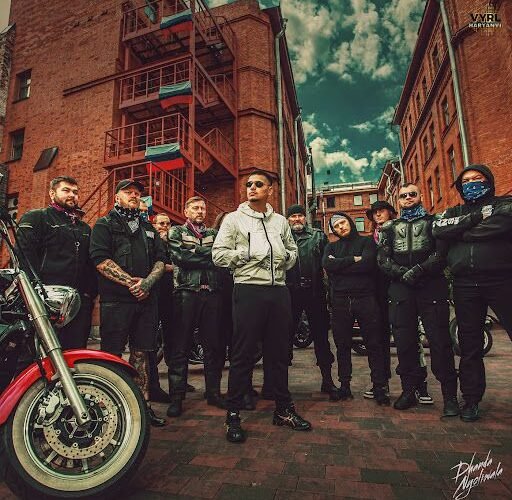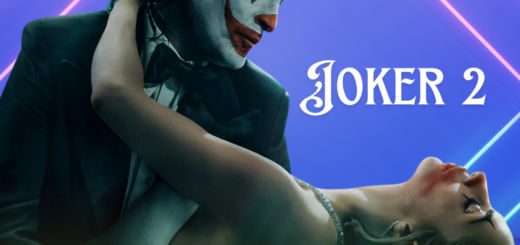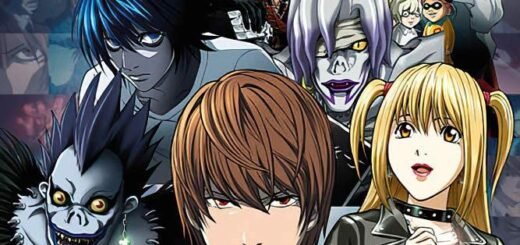Dhanda Nyoliwala – Russian Bandana Lyrics Change Review

How obsessed one has to be with a song and music that the moment you hear a little change in lyrics your face scrunches? I never really thought about it until yesterday. I went out for my usual morning walk, headphones on, Spotify queued up with my regular playlist. The breeze felt nice, my steps synced with the beat in my ears, and then — Russian Bandana started playing. I waited for that one line, the one I always lip-sync with attitude. But instead of the usual punch of attitude and rebellion, I heard a watered-down line. My face turned sour instantly. I stopped walking. I thought maybe my network glitched, maybe Spotify played some remix or some edited radio version. But no. I checked again. Still the same. Lyrics changed. Censored. Toned down.
I rushed to Google. Twitter. YouTube comments. Instagram reels. I needed answers. And there it was. Every music platform now streams a modified version of Russian Bandana by Dhanda Nyoliwala. Why? Because apparently, the government thinks the original lyrics glorify violence and gang culture. But here’s my question — if that’s the case, then why only this song? Aren’t there hundreds of songs casually throwing around guns, crime, and gang life? Why did only this one get targeted?
Russian Bandana: More Than Just a Song
Before this whole censorship situation, Russian Bandana stood as more than just another Haryanvi gangsta-style track. It had personality. It dripped with attitude. Dhanda Nyoliwala doesn’t just rap; he spits raw truth from the streets of Haryana. His voice carries grit, his lyrics carry a story, and Russian Bandana didn’t try to hide anything behind metaphors or sugar-coated words.
It became a street anthem. You could walk past any group of boys on motorcycles and at least one would have this track blasting through Bluetooth speakers. Instagram reels used it in slow-motion bike stunts. Gym bros lifted dumbbells with it playing in their ears. That one line — the now-edited one — became a symbol of rebellion. Of defiance. Of owning who you are.
So, when that line changed, I didn’t just hear different words. I felt like someone took away the raw spine of the track and replaced it with cotton.
What Exactly Changed?
The original lyrics had references to guns, loyalty to crew, and a certain kind of raw pride in wearing aggression as identity. It wasn’t a song for peace conferences. It never claimed to be. It spoke a language that belongs to the streets — rough, unapologetic, loud.
The new version replaces certain words with softer phrases. Some lines got muted altogether. You can literally hear the sound dip where the edits happen. The aggression feels incomplete. It’s like watching a gangster film where all the guns got replaced by water pistols. The emotions don’t land the same way.
The rhythm still hits. The beat still slaps. His voice still rocks. But it feels like someone muted his truth.
The Government’s Reasoning — A Fair Move or Hypocrisy?
According to media reports and circulating discussions on social platforms, authorities flagged the song for promoting violence and influencing youth towards crime. On paper, this sounds like a noble step. Who wants real violence inspired by songs? Nobody. But the question stands: why only Russian Bandana?
Punjabi songs like those from Sidhu Moosewala, Karan Aujla, or even lesser-known underground rappers throw guns and murder references around like confetti at a wedding. Bollywood tracks too — item songs, gang war songs, and even some love songs glorify toxic masculinity or violence. They still exist online, unfiltered. So how does only Dhanda Nyoliwala become the villain of this story?
When laws start applying selectively, they stop feeling like laws and start looking like personal bias.
Art, Censorship, and the Thin Line Between Them
Music never asked for permission. It has always been the voice of rebellion. From rap in America to rock in the UK to folk songs during Indian freedom struggle — music screams truth when society tries to silence it. Censorship kills that spirit.
The government thinks the lyrics promote violence. But art doesn’t promote — it mirrors society. If gun culture exists in Haryana or Punjab or anywhere, banning lyrics doesn’t erase that reality. It only hides it under a rug. Art holds up a mirror to society. Breaking the mirror doesn’t clean your face.
Instead of censorship, why not conversation? Why not let artists create and let listeners choose? If someone doesn’t want their kids listening to such music, teach them values. You can’t raise responsible adults by muting songs.
Public Reaction — Outrage, Memes, and Mockery
The internet doesn’t stay quiet, especially when someone messes with a popular track. Twitter (or X, whatever Elon Musk insists on calling it) filled up with memes:
- “Government when someone sings about guns: Emergency!
- Government when crime rate increases: Hmm, interesting.”
Fans of Dhanda Nyoliwala posted side-by-side videos of old vs new lyrics. People called it unnecessary. Some said it ruined the vibe. Others said they’ll only listen to the original downloaded version from YouTube. A few even joked, “Now the song sounds like a school annual function rap.”
Instagram pages covering Desi Hip-Hop posted stories defending artistic freedom. Haryanvi rap fans argued that if they ban this song, they should ban every song talking about whiskey, guns, and gang symbols.
Meanwhile, some supporters of the decision said, “Youth follows these artists blindly. Someone needs to take responsibility.” I respect that opinion. But I ask—why single out one artist? Why not create a clear guideline for all songs, all genres, all artists?
Dhanda Nyoliwala — The Man Behind the Mic
Before we talk more about lyrics, let’s talk about the man who wrote them. Dhanda Nyoliwala doesn’t come from Bollywood glamour. He didn’t stroll into a studio with connections and money. He came from dusty streets, daily struggles, and real stories.
His songs talk about loyalty, betrayal, ground-level politics, brotherhood, and survival. He never pretends to be something he’s not. Listeners connect with that honesty. He carries Haryana’s raw soil in his voice. He represents a generation that doesn’t wear suits but stands tall in vests, track pants, and that signature bandana.
Russian Bandana wasn’t just a random song. It was his identity stitched into a beat. And when someone cuts off parts of your identity, you feel attacked.
Lyrics Change vs Creative Freedom
Someone might argue — “It’s just a few words. What’s the big deal?” But it is a big deal. Imagine if someone edited Shakespeare’s dialogues because they felt too violent. Imagine if they muted Gabbar in Sholay because he sounded too scary. Imagine if they changed “Aaj kal ke bacche” songs to “Aaj kal ke phool”. You’d laugh.
Lyrics form the soul of a song. You can’t pull them out like weeds without hurting the soil. Every edited word feels like someone taped Dhanda’s mouth mid-sentence.
Should Music Be Completely Free from Censorship?
Not entirely. Let’s be real. Some songs cross lines — hate speech, communal targeting, objectification. Those deserve strict action. But songs that just narrate the raw truth of street life? They don’t promote it; they reflect it.
Censorship shouldn’t erase reality; it should stop deliberate harm. And Russian Bandana didn’t target any community. It didn’t glorify crime as a career. It simply portrayed a lifestyle some people live through — a style that Dhanda put into words and beats.
Impact on Music Industry — Silence or Stronger Voices?
When you censor one artist, you send a message to all artists: “Stay within the lines or stay out.” That fear creates safe songs, comfortable lyrics, and forgettable music. No artist grows under fear.
But here’s the twist — censorship sometimes triggers louder rebellion. Fans now dig deeper into underground rap. Artists write sharper lyrics. Controversy gives fame. Russian Bandana now trends more than before. The edited version drove listeners to find the original. That’s the irony of censorship — the more you suppress something, the more people crave it.
What About Responsibility of Artists?
Art gives freedom, but freedom demands responsibility. Artists like Dhanda hold influence. Teenagers copy their style, language, even attitude. So yes, artists must understand the power of their words.
But responsibility doesn’t mean silence. It means storytelling with awareness. One can express violence without encouraging it. One can rap about guns without asking kids to pick them up.
Dhanda Nyoliwala talks about harsh reality, not romantic fantasy. He paints life raw. That holds value.
My Take — Let Art Breathe
That morning walk turned into a mini existential crisis about music, censorship, and freedom. A song I loved sounded unfamiliar. I felt betrayed by the system that decided what I should hear. And no, I don’t support violence or glorify gang culture. But I support truth. I support expression. I support raw art.
Russian Bandana deserved respect for what it stood for. If authorities found it problematic, they could have issued advisories, age warnings, or disclaimers. But muting lyrics feels like putting a bandage over a bullet wound and declaring the patient healed.
Conclusion — The Bandana Still Waves
Russian Bandana may have changed lyrics on Spotify, Apple Music, YouTube Music, and wherever else. But in people’s hearts, the original lives. Fans still hum it. YouTube still hosts older uploads. Local DJs still blast it at weddings and car meets.
You can change the words, but you can’t change the impact.
Dhanda Nyoliwala didn’t just write a song; he sparked a conversation. About censorship. About artistic freedom. About double standards.
So yeah, next time you hear someone casually humming Russian Bandana, know this — it’s not just music playing. It’s a symbol of resistance wrapped in rhythm. It’s a bandana, waving in the air, refusing to bow.
Also Read – Nepotism in Bollywood: Is It Really That Bad?













